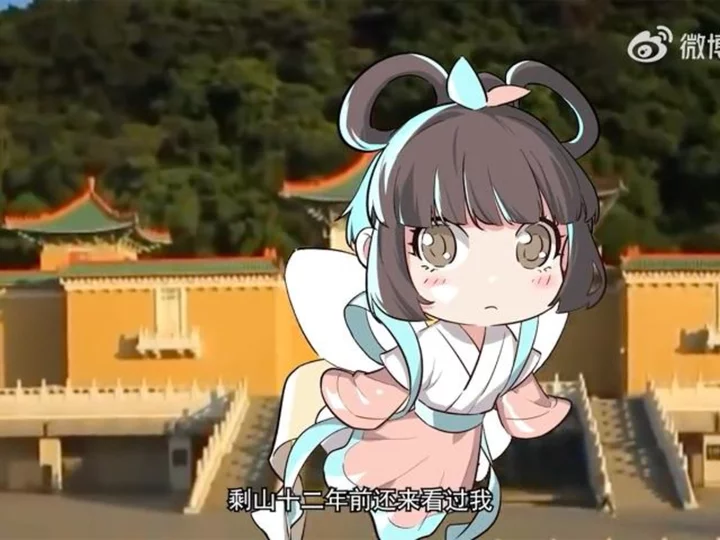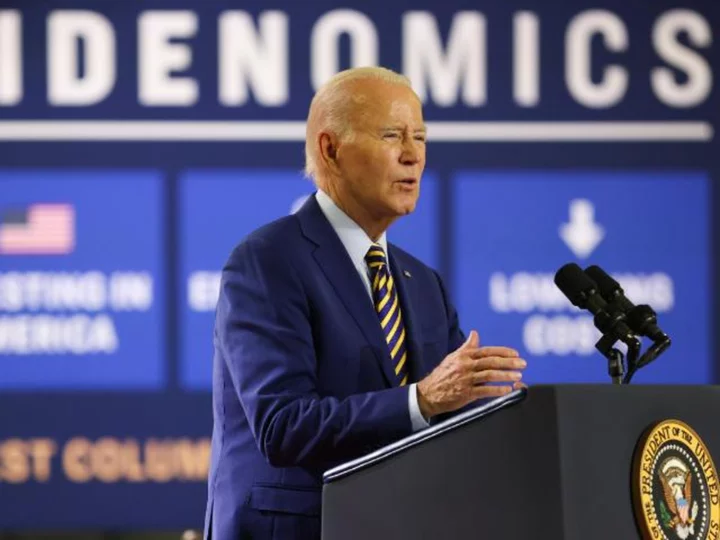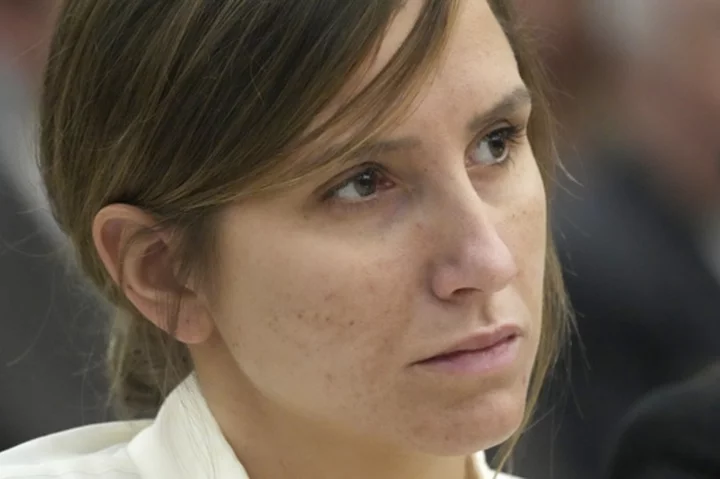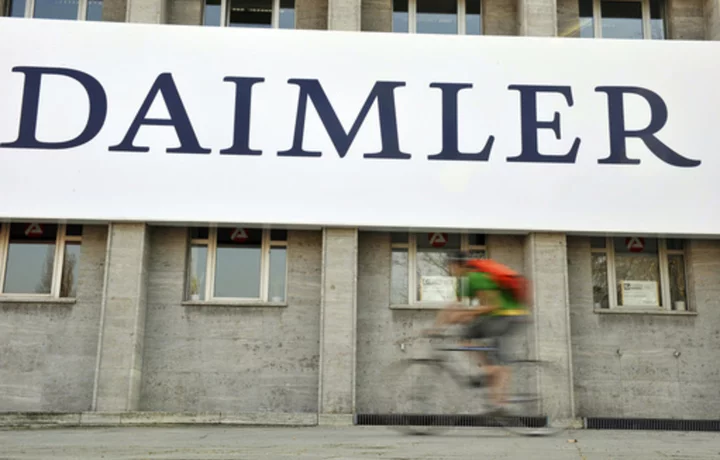China's military released an animation on Sunday depicting the journey to reunite two halves of a torn scroll across the Taiwan Strait, a thinly veiled reference to the country's longstanding goal of "reunification" with the democratic, self-ruled island.
The animation was released by the Eastern Theater Command of the People's Liberation Army (PLA) to mark National Day, the anniversary of the founding of the People's Republic of China, and is the latest short film to capitalize on nationalist sentiment over historic Chinese treasures held overseas.
China's ruling Communist Party claims Taiwan, home to 24 million residents, as its territory — despite never having controlled it. It has long vowed to "reunify" Taiwan with the Chinese mainland, by force if necessary.
At the very center of that threat sits the Eastern Theater Command, the wing of China's enormous military force that handles operations in the Taiwan Strait, and which routinely conducts military exercises including simulated precision attacks on the island.
In the animation, two cartoon elves represent the two halves of the famous artwork "Dwelling in the Fuchun Mountains," by Song dynasty painter Huang Gongwang.
Painted in the 14th century, the scroll was damaged by a fire in 1650 and split into two — with one part now kept at the National Palace Museum in Taipei, and the other at the Zhejiang Provincial Museum in the Chinese city Hangzhou.
As a result, the scroll has long been seen as a living symbol of the division between China and Taiwan.
The animation shows one elf, representing the scroll piece in Taipei, deciding to visit her counterpart in Hangzhou, reminiscing on when he had "come to visit me 12 years ago" — a reference to when China loaned Taiwan its half of the scroll for a joint exhibition of the complete work in 2011, during a brief period of warmer ties between the neighbors.
On the Taipei elf's journey to Hangzhou, she passes by Chinese military aircraft and maritime vessels, marveling at much of the hardware on display and exclaiming: "So cool!"
At the Zhejiang Provincial Museum, she is met by the second elf — and the pair visit the ongoing Asian Games, hosted this year in Hangzhou, arriving just in time to see the Taiwan team introduced as "Chinese Taipei" during the opening ceremony.
For years, China has marginalized Taiwan in the international community, resulting in the island being blocked from international bodies such as the World Health Organization. Even when it is allowed to participate, it is under the moniker "Chinese Taipei" — including at the Olympic Games and various sporting competitions, to considerable resentment among many in Taiwan.
The animation ends with the two elves rejoining both halves of the scroll.
In recent years Beijing has ramped up military pressure on Taiwan, as well as its rhetoric on "reunification," which Chinese leader Xi Jinping has declared "must be achieved."
Xi's increasingly bellicose tone, the dramatic increase in Chinese military drills around Taiwan, and Russia's decision to invade Ukraine after years of making similar threats have crystallized fears in the region that Beijing might one day try to do the same.
Last month, Beijing unveiled a plan to deepen integration between Taiwan and the Chinese coastal province of Fujian, touting the benefits of closer cross-strait cooperation — while sending warships around the island in a show of military might.
It also comes at a delicate moment as Taiwan gears up for its presidential election in January, with the island's foreign policy and relations with China a central issue in the race alongside more bread and butter issues like the cost of living and stagnant wages.
'Escape from the British Museum'
The Chinese military said its short film had been inspired by another recent online phenomenon: a viral video series titled "Escape from the British Museum," depicting a Chinese jade teapot that came to life and embarked on a journey back to China from London.
The series became wildly popular on Chinese social media, viewed hundreds of millions of times; the first episode on Douyin, the sister app to TikTok, has so far garnered more than 10 million likes.
It was released in late August — the same time the British Museum became embroiled in international controversy over the recent theft of 2,000 artifacts, including ancient Greek and Roman items, which prompted the resignation of the museum director and an ongoing police investigation.
Chinese state media have also jumped on the video series and the real-life scandal to push for the return of Chinese artifacts kept at the British Museum, sometimes with a nationalist lean.
The removal of cultural treasures in the past remains a huge point of contention and emotion for many in modern China, alongside the desire to see such artifacts returned.
Like many other nations, China suffered significant looting by colonial powers, in particular after the Anglo-French sacking of Beijing's Old Summer Palace in 1860 and decades of later Japanese rule.
When Chiang Kai-shek's Nationalist troops lost the Chinese Civil War to Mao Zedong's Communist forces in 1949, they also transferred some of China's most treasured items to their new seat of power in Taipei — which is why the island's main museum has one of the world's best collections of Chinese artifacts and artworks.
The "Escape from the British Museum" series "has struck a chord in people's hearts and reflects the deep patriotic sentiments," said one article in the state-run tabloid Global Times. In another editorial, Global Times accused the British Museum of displaying "plundered" Chinese artifacts obtained through "dirty and sinful means."
Similar sentiments were shared by Douyin users under the "Escape from the British Museum" series, with one writing on Sunday: "Watching this again on National Day, I really couldn't bear it, I sobbed! I believe one day, Greater China will definitely bring them home with dignity."









